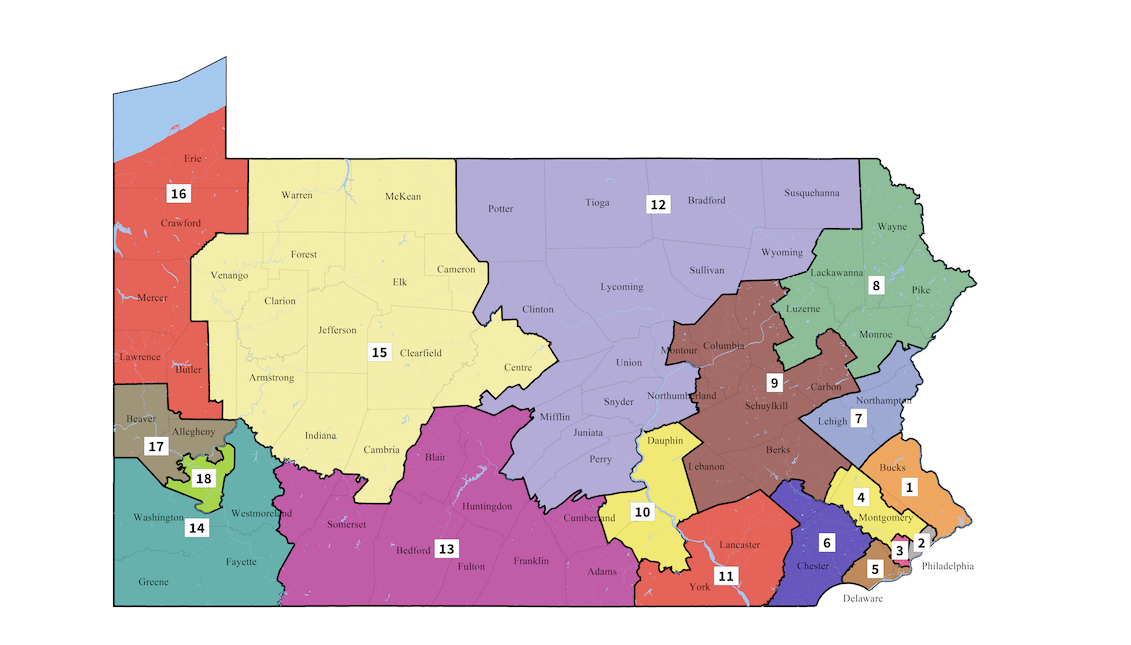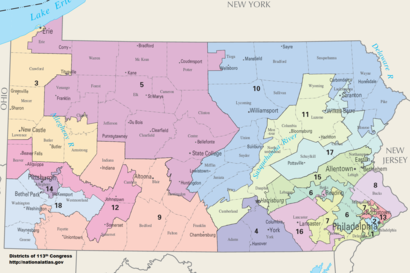
Pennsylvania has a new Congressional District Map, and Republicans hate it
The Supreme Court of Pennsylvania enforced on Monday a new map of the state’s districts for the elections of 2018, blocking the political manipulation that has…
2018 is becoming increasingly difficult for the Republican Party, who must fight to maintain its majority in the main legislative bodies of the country after the midterm elections.
Between an identity crisis and the presidential obstructionism, any minimal modification in political strategies can turn the stage to the left, giving the Democrats the opportunity to compensate for the damage that the Republican tribalism has inflicted in the life of the American citizens.
Pennsylvania – frequently Republican territory - has become a balanced ground for electoral disputes, after the Supreme Court made public the new district distribution for the primary elections of May 15.
The new map, approved in a 4-3 decision by a Democratic-majority court, redistributes in an equitable manner the territory of the state that previously had a division that considerably favored the Republican Party through the strategy known as Gerrymandering (in honor to the governor of Massachusetts, Elbridge Gerry), and that has been considered by Democrats and political science specialists as unconstitutional.

According to Wired, the “playbook” is simple: "Concentrate as many of your opponents’ votes into a handful of districts as you can, a tactic known as ‘packing.’ Then spread the remainder of those votes thinly across a whole lot of districts, known as ‘cracking.’ If it works as intended, the opposition will win a few districts by a landslide, but never have enough votes in the rest to win the majority of seats."
This was the strategy used by Republicans after the 2010 census, and which has now been denounced as unfair to the right of voters to participate in free and equal elections.
RELATED CONTENT
According to the Washington Post analysis, the new map of the Supreme Court of Pennsylvania has divided the state into more compact areas, "eliminating more than 1,100 miles of borders drawn by Republicans to give themselves a partisan advantage," and taking for granted that the only thing that voters should have in common is geographical proximity.
While Pennsylvania’s Republican leaders had previously addressed the debate - redrawing the map in 2011 - the Supreme Court's solution shows a compact but also fairer distribution, which reflects the state's total partisan division without giving advantages to any particular party, as Jonathan Tamari, a Philadelphia Inquirer national policy reporter, explained to CNN.
This legislative decision had to be carried out after the Court ordered the Pennsylvania General Assembly last month to issue a new map with the approval of the state's Democratic Governor, Tom Wolf. Following unsuccessful appeals by the General Assembly, the court had to take matters into its own hands.
However, this new map - added to the current political climate - could give the Democrats the opportunity to take over Pennsylvania where, according to Fox News, Republicans have won 13 of 18 seats in three consecutive elections under the map that the Court has just invalidated.
It is not surprising then that Republicans have now threatened to appeal the decision of the Supreme Court of Pennsylvania. According to a statement issued by the President Pro Tempore of the Senate, Joe Scarnati, and House Speaker Mike Turzai, "the implementation of this map could create a constitutional crisis where the Supreme Court of Pennsylvania would be usurping the authority of the Legislative and Executive branches. We anticipate additional measures in a Federal Court."
Likewise, President Trump wrote on Twitter that he expected the Republicans of the Great State of Pennsylvania to "challenge the new 'pushed' Congressional Map," asserting that, "the original was correct."
But attorney Daniel Jacobson of the Arnold & Porter law firm explained to Wired that “the US Supreme Court already declined to stay the Pennsylvania Supreme Court's decision, [so] it's unlikely they'll take up the case.”











LEAVE A COMMENT: